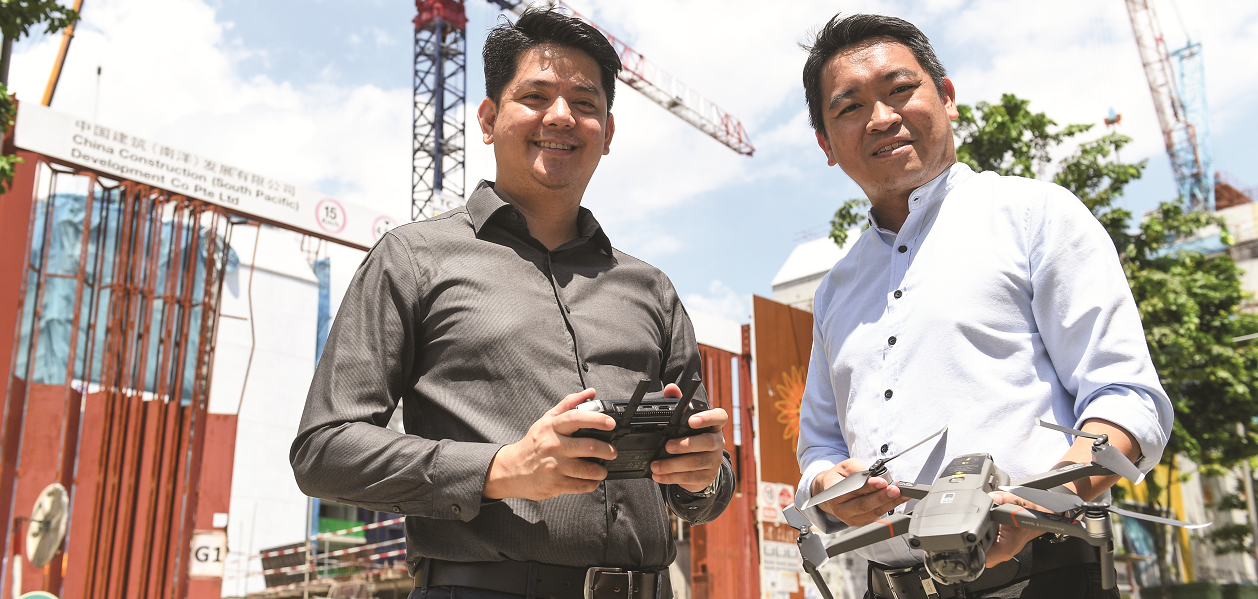For a few weeks in March 2021, Chris Chua checked his emails in anticipation. The Co-founder of Operva AI had recently submitted a project proposal in response to a problem statement put out by China Construction and was eagerly awaiting their response.
Specialising in designing building inspection and defect detection solutions using drones and AI, Operva AI occupied a niche space in the technology sector. However, as a new start-up, it was difficult to attract partners and customers. “IPI helped us by sharing our technology on their Innovation Marketplace and introducing us to potential partners,” Chua shares. “We started to gain more exposure in the market and expand our network.”
One particular introduction was to the open innovation challenge under the Built Environment Accelerate to Market Programme (BEAMP) – a multi-agency initiative supported by IPI. It was there that they came across China Construction’s business challenge and felt they were a perfect match as the two companies shared the common goal of using drones to improve the construction process. If accepted, it would be Operva AI’s first time working with an MNC and Chua was excited about the opportunity to put their solution to the test.
When he finally got the confirmation call, Chua was elated. Right away, he and his team rolled up their sleeves and got down to work. China Construction had been using drones for their construction progress updates and data analytics of the site. However, the existing process was time consuming and laborious, requiring several days to capture sufficient information. Operva AI’s proposed solution was the development of an automated drone photogrammetry application powered by AI and machine learning to shorten the time needed to obtain the necessary data. With that, Operva AI’s Airpland software was born.
Operva AI worked closely with China Construction’s Senior BIM Manager Rob Sanchez and his team, who provided feedback on the app development as well as drone pilots to ideate with the team in user interviews. They took just five months to build the user-friendly mobile and web app that could help automate the construction firm’s current process by creating automated flight plans and minimising human intervention. This also freed China Construction’s drone pilots to focus on more important tasks.
With the prototype of Airpland almost complete, Chua plans to launch the app in early 2022 and start onboarding more partners. “We will continue to implement more advanced features and create a full digital twin for users.”
Besides adding a powerful new app to their portfolio, strengthening their R&D capabilities and enlarging their business potential, Chua is also grateful for the less tangible benefits of the collaboration. “We now better understand the pain points of the construction industry. This helps us in innovating new solutions that solve real-world problems and are field-tested by the industry.”
The experience will stand Operva AI in good stead, as they expand their software solutions globally in 2022 and continue to design AI-driven solutions that enhance efficiency and streamline processes for the built environment industry.
Meanwhile, the team’s collaboration with China Construction is still ongoing. “Believe it or not, due to COVID-19 restrictions, the first time I met the team from China Construction in person was during the photoshoot for this publication,” says Chua. “It is amazing what we have been able to achieve just through video conferencing.”

